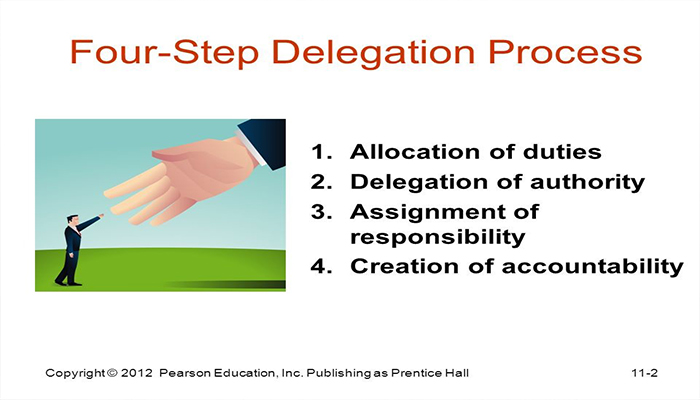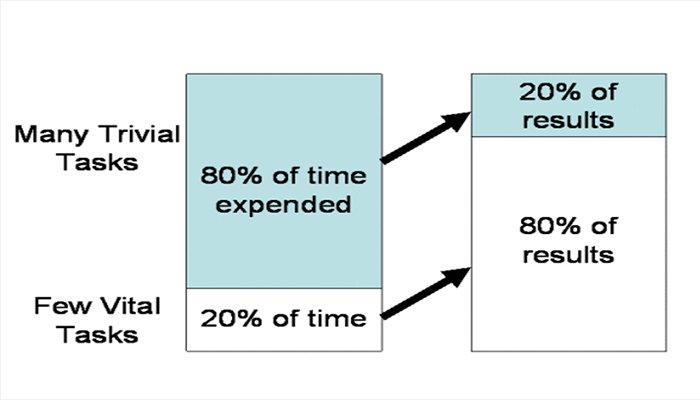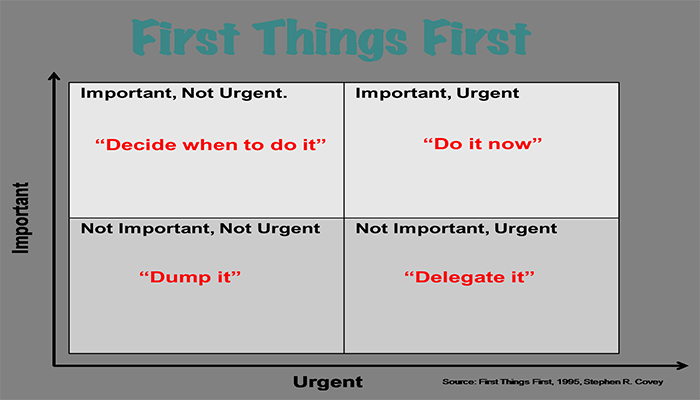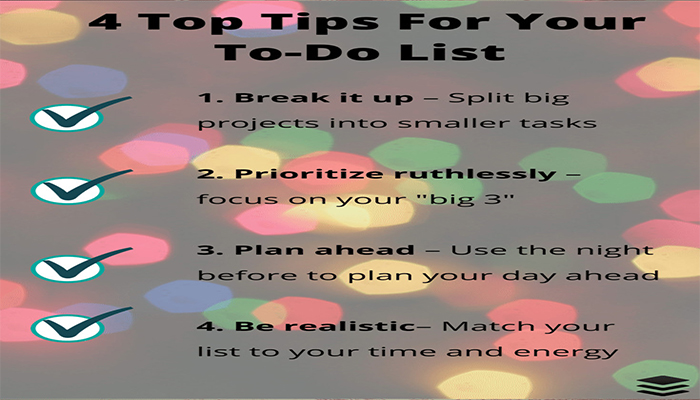MASTERING TASKS AT HAND AND DELEGATING WORK

You are the task manager, owner of the tasks assigned; the initiator, planner and execution head. As we function with teams, there would be complaints that I did my task very well, but you simply ignored, never contributed anything while working. Such complaints and fuming conversations delay our attention on tasks that are pending. Such situations need improvement.
 We must have a transitional mind-set shift from not being merely task-taker but task-makers, where we aim with perfection to master the art of completing each task, if not assign it to the right person with the right competency to do justice to the task assigned. Always check and note down the tasks we are working on and ensure you schedule time to complete each task for closure. Sometime after closing a task another task starts creeps up and then whole cycle repeats itself.
We must have a transitional mind-set shift from not being merely task-taker but task-makers, where we aim with perfection to master the art of completing each task, if not assign it to the right person with the right competency to do justice to the task assigned. Always check and note down the tasks we are working on and ensure you schedule time to complete each task for closure. Sometime after closing a task another task starts creeps up and then whole cycle repeats itself.
As a managers or head of the department, it is our prime duty to complete and pay due attention to each task. Whether we chase, push, pat, shout, beg whatever it takes or demands to finish it successfully, we have to do it. Every time we have to tackle juggling timers of managing each task as a challenge and improve own performance by judiciously trying to do the same task better/faster than before.

Empower people, delegate work:
Delegating is passing task execution to employees, which does not transfer the task ownership from the Head. Though the responsibility is with the delegated person, the accountability yet vests with the delegator. They have sole responsibility to ensure that the person who is assigned the tasks executes it properly and fetches in the result. For proper delegation, the tasks must be assigned to a subordinate with the right skills and knowledge for giving attention to details while implanting the job. After, delegation, it is important you trust the delegate, support him during bottlenecks, and guide him till completion of tasks.
Some reasons why supervisors refuse delegation is fear of losing control over tasks, not wanting to go to through the process of training people, fearing or rather unwilling to accept responsibility for mistakes or errors of employees.
As managers or leaders, we shouldn’t micromanage when we assign task to people. We need to manage a certain distance yet stay close enough with people to use their abilities for the best possible outcome, to ensure that the job is done correctly. We should empower people.

Once a delegated project or task is delivered back to you, spend time to give honest feedback. Give some tips for bettering the outcomes or decisions that can be done for winding up the task. As a leader, you are stepping on the role of training /developing people to perform better. When the work is executed with perfection, be generous with your praise and gratitude. This will boost your subordinate’s self-confidence and motivate him to perform even more optimally. Anyone can do this work by having an analytical thinking to break down big tasks into functions, simply asking, monitoring and pushing; it is smart work of assigning the right people with the right skills and competencies with the right task. However, we need a right methodology to keep a tab, rather track each tasks till the stage of completion. It is incredibly useful to arrange all of the tasks that you’re thinking about just to keep them on top of your mind. The tension is: if you don’t capture the important tasks on your mind, they’ll be there harassing you. Gradually, they would frustrate you about not getting it all done. The brute fact is that most of us have far more to do than we will ever have time available to do.

Important Urgent tasks are those few tasks that you absolutely must complete to have some degree of peace after you’re done working. Practicing the habit of To-do lists is meant to make life simple, making you accomplish the pending tasks in a day, becoming more productive while everything falls into its place magically! Prioritizing helps keep us organized and reduce the stress of forgetting things we need to do, but only if we use them efficiently.
 After you priorities your tasks, break them down into smaller chunks and schedule them at a time for you to give due attention to important urgent tasks at hand. In fact making a list and adhering to it is a time-saver tactic, where you are clear how much time you can dedicate for each task and you have a time-table, which you diligently follow.
After you priorities your tasks, break them down into smaller chunks and schedule them at a time for you to give due attention to important urgent tasks at hand. In fact making a list and adhering to it is a time-saver tactic, where you are clear how much time you can dedicate for each task and you have a time-table, which you diligently follow.
Categories your tasks into must-dos, should-dos and want-to-dos. In this way, you are prioritizing them according to their perceived impact. Must-do tasks are those that will have an immediate impact, should-dos are those that contribute to your long-term goals and want-to-dos are what will bring balance & include things that you really want to get done and are passionate about. So adopting this method ensures both order and happiness in your day.
SOME TIPS:

· Use both digital and paper lists, cell phone reminders, calendar for popping-up the list of everyday tasks.
· Avoid momentary escape with procrastination that would pile up unwanted stress and make a collapse of important urgent tasks at hand. Start with do it right now frame of mind.
· Set tentative deadline for each tasks, so that the work-in-progress is on right track. Monitor failures and re-think novel ways to execute task with better methodologies that is failure-proof.
· Clean up your list. When you have executed a task, strike it off and re-arrange items in order of priority to again shift attention on the next most important job.
· When you delegate tasks to your subordinates, acknowledge contributions from each employee in finishing the job. Guidance and being lavish in praise, open remarks will make the system more transparent and works well on the trust factor.
Basically, the ideology behind a stringent to-do-lists allows us to track our countless to-do items, categorize, segregate and list them in order of priority. It functions like an internal biological reminder, greatly improving your ability to remember, plan, and prioritize. They help you to focus, avoid getting distracted and levy upon you a sense of fulfillment, rather satisfaction upon completion of each tasks, reducing chaos or unnecessary commotion.










